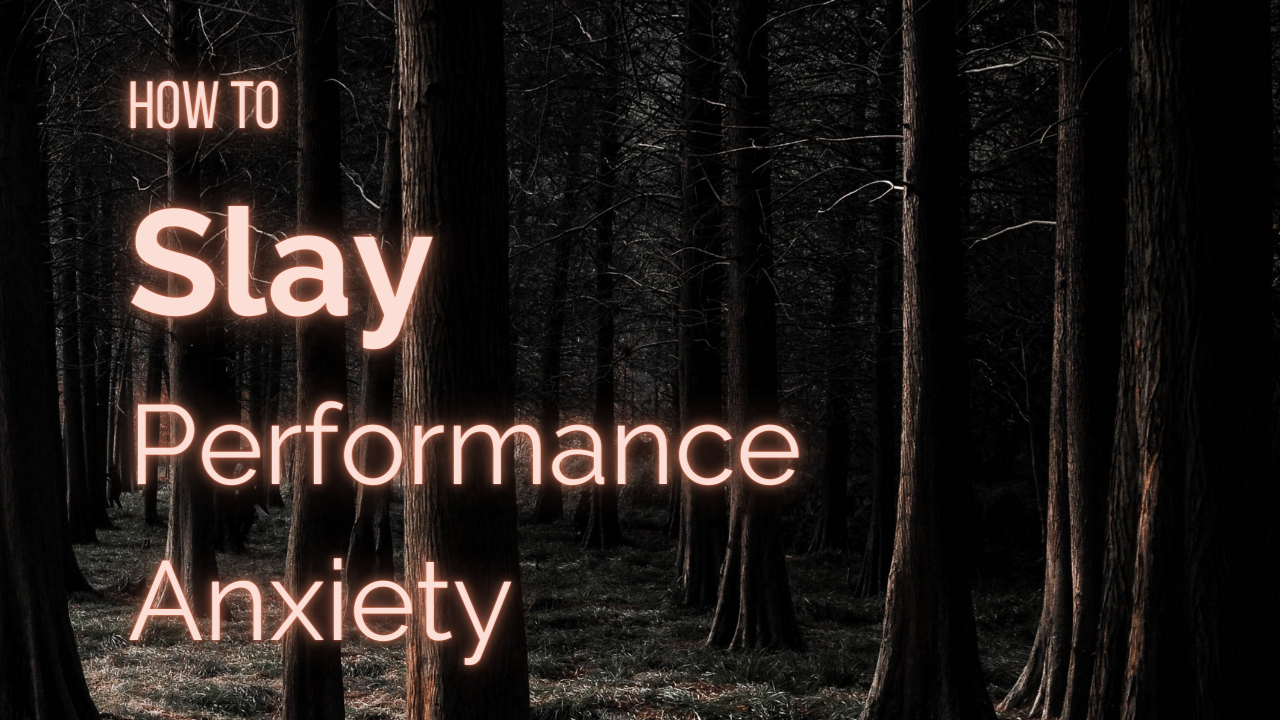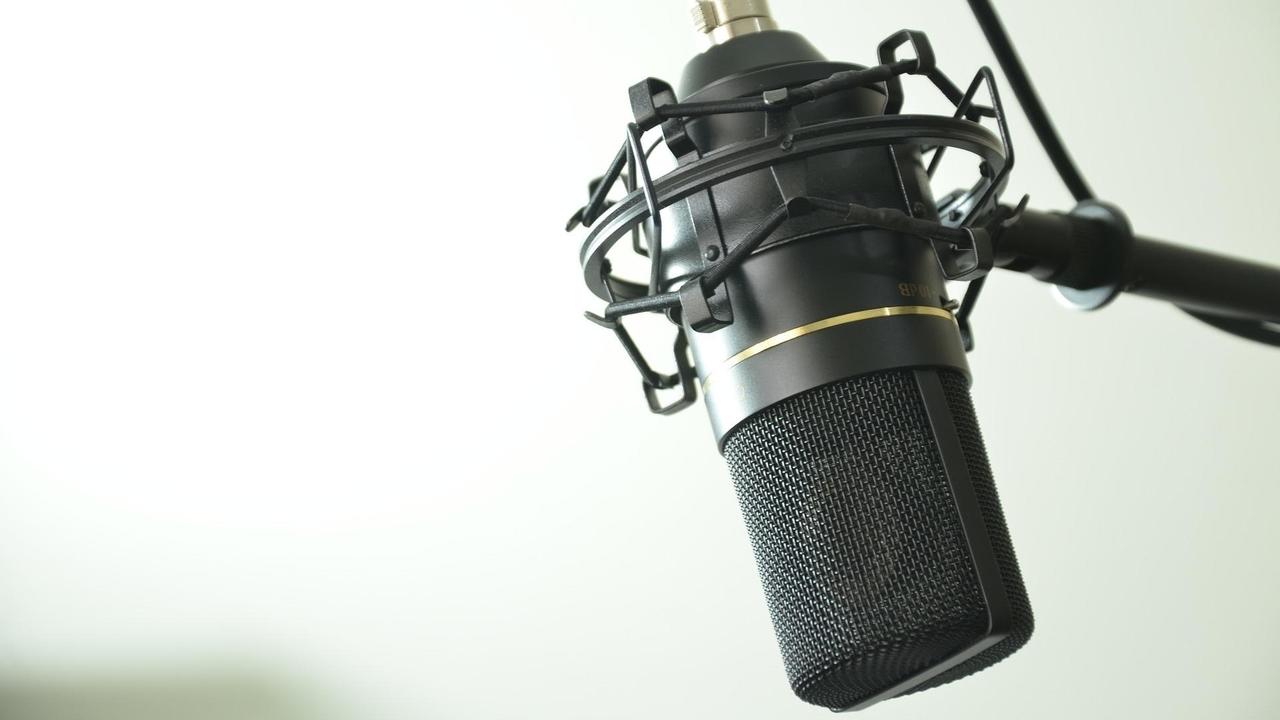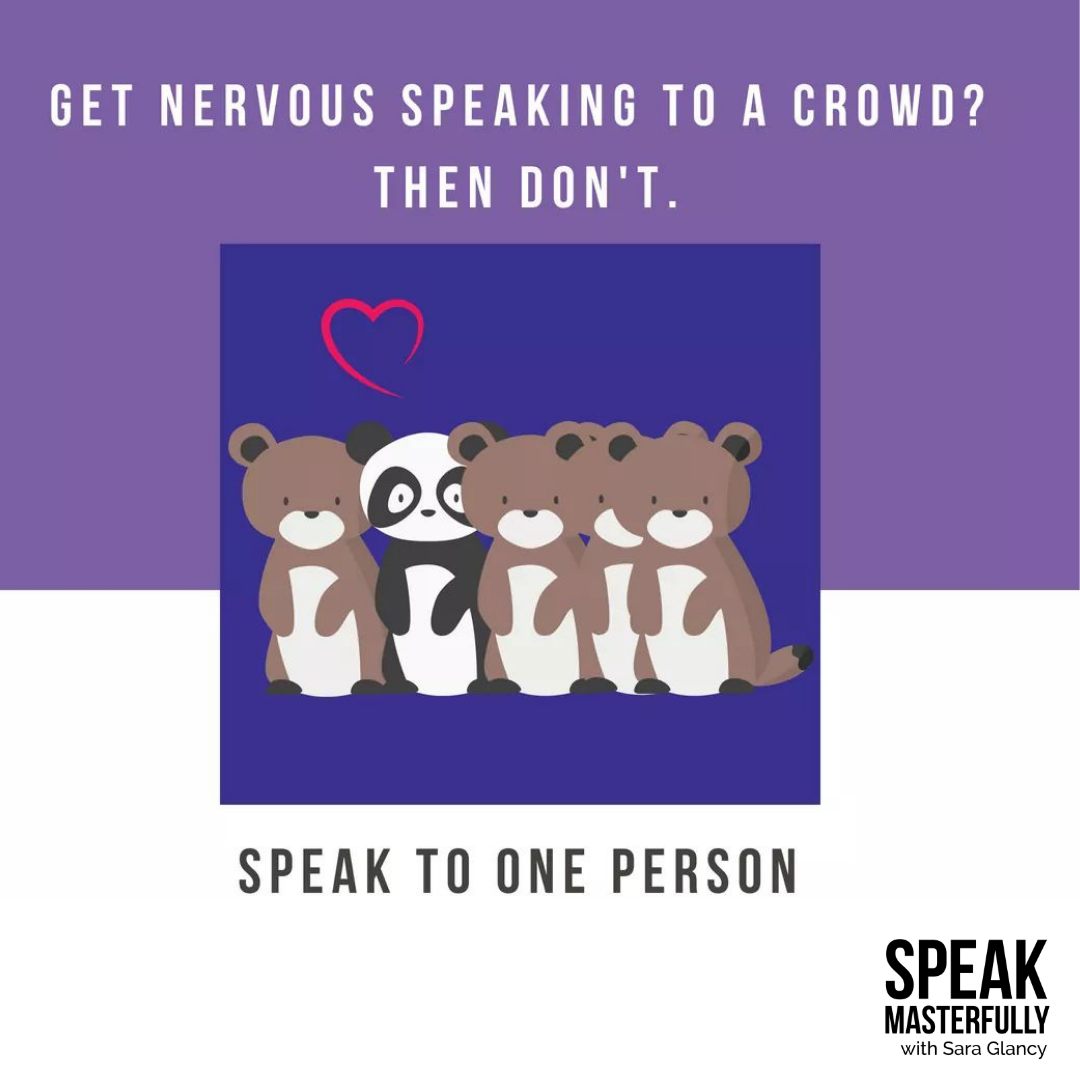Speak Before You Think: Public Speaking Hacks for Chronic Overthinkers

Are you a notorious straight-shooter who always says exactly what's on your mind without a moment's hesitation?
This blog is not for you.
Today, I want to talk to my overthinkers.
My friends who always think before they speak (sometimes to their own detriment).
Growing up, we're often told to “Think before we speak.”
This is excellent advice in general. Having a filter is a very useful thing in polite society. But, as with so many things in life, a trait that starts off as adaptive can very quickly become maladaptive.
Let’s talk about this idea of “the filter.”
When it comes to speaking, I like to think of verbal filters like curtains.
Each idea we have is a ray of sunlight.
In an ideal world, these rays are filtered through the curtain, letting an appropriate amount of light into the room.
People who have no filter often get in trouble for speaking without thinking.
They’ve built a house without curtains.
Sometimes the natural light can be refreshing, but often it’...
We're Defining "Public Speaking" All Wrong

I can’t tell you how many times a week I hear some version of the following statement:
“I don’t really do a lot of speaking. I mean–I have one-on-one conversations all the time, but the idea of speaking to a crowd TERRIFIES me.”
This statement always puzzles me.
(Not the part about public speaking being scary–that I totally get. Performance anxiety is a completely normal fight or flight response that I will get into later in this very email!)
No, the thing that puzzles me is the first half of that statement:
How can someone say that they “don’t do a lot of speaking” and immediately follow it up with “I have one-on-one conversations all the time”?
This is one of my biggest gripes about the field of Public Speaking.
Most of us are putting far too much emphasis on the word “Public.”
Public Speaking does NOT have to mean “speaking to a crowd.”
If you speak up in a team meeting of five people, you are a public speaker.
If you lead grace at the dinner table, you are a publi...
How To Slay Performance Anxiety

In honor of Halloween, I want to talk about a spooky subject that constantly graces my inbox...
Performance Anxiety.
You know the feeling. You step up to the mic or turn on your camera and suddenly it hits you:
- The racing heart
- The sweaty palms
- The tunnel vision
- The sudden deer-in-the-headlights look in your eyes
It's like you've just seen a ghost.
And then the spookiest thing of all happens...
Despite all the preparation you put into this presentation, you have this horrific realization:
You don't remember what you're supposed to say next.
👻 😱 👻
If you've ever experienced performance anxiety around public speaking (and I know I sure have), it really can feel like a supernatural event.
Especially if you normally have no problem speaking in front of a group.
I can't tell you how many times a client has come to me distraught and confused saying,
"I have no idea why I froze up during that presentation. I don't normally get nervous during those kinds of things!"
They're...
It's Too Damn Noisy in Here

How am I supposed to get through my presentation when everyone keeps talking? Try as I might, I can’t wrangle my thoughts and remember what’s on my next slide with this CONSTANT chatter.
It feels like every third word, someone is interjecting:
- “Sara, you tripped over that last sentence.”
- “Sara, there was a better way to say that.”
- “Sara, Gary looks bored.”
- “Sara, this isn’t how you practiced it at home.”
- “Sara, this is a disaster. Just speed through and put everyone out of their misery.”
It is too damn loud in here.
...Of course, by “in here,” I mean in my own head.
That’s right. Today we are talking about that chatty inner-critic.
We all have one. Some are chattier than others, but one thing all inner-critics have in common is this:
They are supremely unhelpful while you are presenting.
Don’t get me wrong, there is a time and a place for constructive criticism. However, that time is NOT in the middle of your presentation.
It’s impossible to connect and ...
Did Shakespeare Destroy Your Public Speaking Confidence?

"Oh God, I HATED Shakespeare in school."
This is the reaction I get from 90% of my public speaking clients when they learn that, before I was a public speaking coach, I taught Shakespeare performance at an Elementary/Middle School.
I didn't think much of it the first couple times a client said this.
After all, Shakespeare isn't everybody's cup of tea.
But after 5 or 6 clients said that exact phrase to me, I started to get curious...
Why was hating Shakespeare such a common experience among my public speaking clients?
Why was my experience with Shakesp...
How to Calm Your Nerves By "Game-ifying" Your Public Speaking (Speak Masterfully Tip #3)

Buckle up for week 3 of our on-going blog series:
You ready for tip #3?!
Okay! Here it is:
“Don’t be nervous!”
JUST KIDDING!
Wouldn't that be an incredibly unhelpful tip?
Let's talk for a second about why “don’t be nervous” such an unhelpful piece of direction to give someone.
Because it’s inactive.
In general, humans aren’t great at processing negative direction.
For example: Don’t think of an alligator.
See...
Similarly, a doctor trying to improve a patient’s diet will probably have greater success with the prompt “Eat more vegetables” than “Eat less junk food.”
A lovely side-effect of eating more vegetables is that people naturally eat less junk food, but it’s much easier to get them there with an active prompt.
That’s why the real Tip #3 is Find a Game.
Let’s give you something ACTIVE to accomplish during this talk.
Time to set an intention.
Get clear on what...
How to CHILL OUT Before a Public Speaking Engagement (Speak Masterfully Tip #2)

It's week 2 of our cheeky blog series:
and it's time to talk about our pre-speaking warm up!
I'll be doing a video series demoing some of my favorite physical and vocal warm-ups down the line, but today we gotta talk about an essential and too often skipped step of the process...
Who's ready for a pre-speaking mini-meditation?!
WAIT, WAIT, DON’T SKIP THIS PART!
I promise I’m not going to suggest a daily hour-long transcendental meditation practice.
(Although, if you’re into that, by all means go nuts!)
Look, I know that slowing down and focusing on your breath is probably the last thing you feel like doing when those pterodactyls are flapping around in your belly. (Some people talk about butterflies in the stomach, but I think pterodactyls are a more accurate description.)
But at this point, the scientific benefits of meditation when it comes to anxiety and performance are...
What to Do If Speaking to a Large Crowd Makes you Nervous (Speak Masterfully Tip #1)

Welcome back to our on-going blog series:
Let’s start out our 1st week of Speak Masterfully Speaking Tips with a brazenly simple suggestion:
If you know you struggle with speaking to a crowd of people, then don’t speak to a crowd of people.
Speak to one person.
Imagine you have a good friend sitting in the back row—someone nonjudgemental. The kind of friend you’d have no problem inviting over even if your place were a mess. Make this a private conversation between the two of you.
Allow your eyes to take in the whole room, but keep the intention of a private conversation. Focus in on the one or two people smiling and nodding.
Not only will speaking to one person calm your nerves, it will create a feeling of intimacy with the audience.
Apply this advice to the writing of your piece as well as the delivery. To quote James Joyce, “In the particular is contained the universal.”
...Worst. Speaking Advice. EVER.

Please...Don't picture the audience in their underwear.
I’m not sure where that advice initially came from, but I guarantee you there are more effective (and less creepy) ways to calm your public speaking nerves.
How do I know? I’m an actor.
Hi, I’m Sara Glancy, founder of Speak Masterfully. I received a BFA from NYU Tisch School for the Arts in Making a Fool of Myself in Public. (Okay, it was in Drama, but those are basically the same thing.)
And here’s something that might surprise you:
Even after 5 years touring and performing Off-Broadway, I STILL get nervous before stepping onstage.
Yep. Like clockwork, the curtain rises, the heart-rate quickens, and the butterflies flap.
In fact, most actors get pre-show jitters. You learn to get comfy with those nerves and let it fuel rather than derail your performance.
But here’s something that surprised ME:
The first time I stepped onstage as an entrepreneur was 100x scarier.
I expected butterflies in the stomach—what I got was p...




